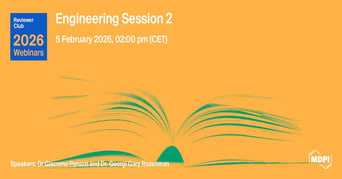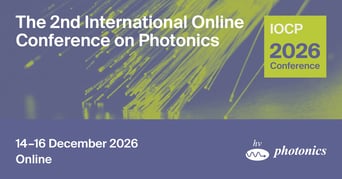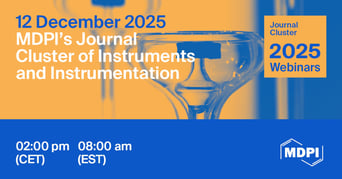- 3.5Impact Factor
- 8.2CiteScore
- 18 daysTime to First Decision
News & Conferences
Latest News & Announcements
Latest Conferences
Propose a Conference Collaboration
Promote and publicise your upcoming conference with MDPI.
All News & Conferences
News & Announcements
MDPI INSIGHTS: The CEO's Letter #31 - MDPI 30 Years, 500 Journals, UK Summit, Z-Forum Conference, APE
2 February 2026
5 - 5 February 2026
News & Announcements
MDPI Reviewer Club Webinar 2026 | Engineering Session 2, 5 February 2026
29 January 2026
14 - 16 December 2026
News & Announcements
Meet Us at the 12th Annual Innovations in Large-Area Electronics Conference (innoLAE 2026), 17–19 February 2026, Cambridge, UK
12 January 2026
News & Announcements
MDPI’s Newly Launched Journals in December 2025
9 January 2026
News & Announcements
Welcoming New Early Career Editorial Board Members of Sensors
18 December 2025
News & Announcements
MDPI’s Journal Cluster of Instruments and Instrumentation Webinar | Next-Generation Smart Biosensors for Healthcare and Environmental Monitoring, 12 December 2025
11 December 2025
News & Announcements
Article Layout and Template Revised for Future Volumes
11 December 2025
News & Announcements
Meet Us Virtually at the 1st International Online Conference on Sensor and Actuator Networks (CSAN 2026), 9–10 July 2026
19 November 2025
of 74





.jpg?v=1769683508)





